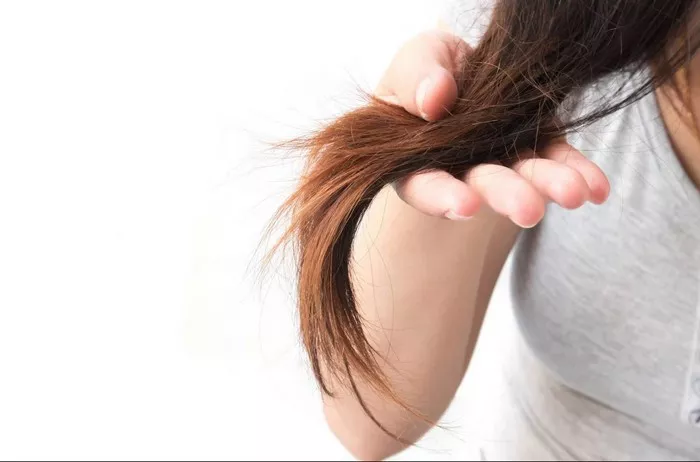Matted hair can be a distressing and frustrating experience, especially when you don’t have a commercial detangler on hand. It often feels like your hair has turned into a solid, tangled mass that resists even the gentlest of brushes. Whether you’ve skipped wash days, neglected to wrap your hair before bed, or your texture is naturally prone to tangling, it’s important to approach matted hair with patience and the right strategy.
This guide provides a comprehensive approach to detangling matted hair without detangler while keeping your Hair Health intact. With careful handling, the right tools, and a solid understanding of effective Hair Care Steps, you can restore your hair to its smooth, healthy state.
Why Matted Hair Happens
Before you tackle the tangle, it’s essential to understand why matting occurs. Common causes include:
- Lack of regular brushing or combing
- Sleeping with loose hair
- Product buildup or residue
- Excessive dryness or damage
- Wearing protective styles too long
Matted hair is more than just tangles—it’s when individual strands knot around each other, forming tight clumps that are difficult to separate. Approaching it without care can lead to breakage and damage.
Preparing Mentally and Physically
Detangling matted hair isn’t a task to be rushed. Set aside ample time and prepare yourself to work slowly and gently. Aggressively tugging at knots can cause unnecessary hair loss and damage.
Here’s what you’ll need:
- Wide-tooth comb
- Spray bottle with warm water
- Natural oils (coconut, olive, or argan)
- Patience and a mirror
- Hair clips for sectioning
Step-by-Step: How to Detangle Matted Hair Without Detangler
Step 1: Dampen the Hair
Use a spray bottle filled with warm water to dampen your hair. Avoid soaking it—just aim for light hydration. Matted hair is more pliable when slightly damp, reducing the risk of snapping strands.
Step 2: Apply Natural Oil
Coat your fingers with your chosen oil and gently work it into the matted sections. Oils like coconut or olive oil provide slip, which helps loosen the tangles. This step is vital for Hair Health Tips that emphasize minimal breakage and moisture retention.
Step 3: Section the Hair
Divide your hair into manageable sections using clips. Focus on one section at a time. Working in small areas ensures thoroughness and control, reducing the chance of causing damage.
Step 4: Start Finger Detangling
Begin detangling each section with your fingers. Locate the matted areas and gently pull the knots apart. Use a gentle wiggle motion and avoid yanking. Your fingers are sensitive tools and less likely to cause breakage compared to combs or brushes at this stage.
Step 5: Use a Wide-Tooth Comb
Once the major tangles have been separated by hand, follow up with a wide-tooth comb starting from the ends and working upward. Always comb slowly and carefully. If you meet resistance, return to finger detangling.
Step 6: Rinse and Condition
After you’ve detangled all sections, rinse your hair gently and follow up with a rich, moisturizing conditioner. This will help restore hydration and improve elasticity. You can even apply a deep conditioning treatment for extra nourishment.
Alternative Natural Detangling Solutions
Aloe Vera Gel
Aloe vera is not only soothing for the scalp but also provides excellent slip for detangling. Apply the gel directly to the matted areas and allow it to sit for 15 minutes before working through knots.
Apple Cider Vinegar Rinse
Mix one part apple cider vinegar with two parts water and use it as a rinse. It helps dissolve product buildup and can make detangling easier. Just be sure to rinse thoroughly afterward.
DIY Conditioner Mix
Mix a tablespoon of your regular conditioner with some warm water and a few drops of oil in a spray bottle. Use this as a homemade leave-in spray to soften and separate matted hair.
What Not to Do When Detangling Matted Hair
-
- Never detangle dry hair—it increases breakage risk.
- Don’t use fine-tooth combs; they’ll snag and tear.
- Avoid pulling forcefully—this can damage the roots.
- Resist the urge to cut unless absolutely necessary.
If you’ve tried everything and the matting is severe, it might be worth seeking professional help from a stylist who specializes in detangling.
Maintaining Hair to Prevent Future Matting
Establish a Regular Hair Care Routine
Consistency is key to preventing future matting. Incorporate Hair Care Routine Steps like weekly deep conditioning, regular detangling sessions, and protective styling into your regimen.
Moisturize Often
Dry hair is more likely to tangle and matt. Keep your strands hydrated with leave-in conditioners, oils, and water-based sprays. Monitor your hair’s needs and adapt your routine accordingly.
Protect Your Hair While You Sleep
Always wrap your hair in a satin or silk scarf, or sleep on a satin pillowcase to minimize friction and tangles.
Conclusion
Detangling matted hair without a detangler may seem daunting, but with patience, the right technique, and a gentle touch, it’s absolutely possible. Prioritize your Hair Health Advice by choosing methods that avoid stress and damage to your strands.
Incorporate these Hair Care Tips into your daily routine to maintain soft, manageable hair that resists matting and breakage. Remember, your hair thrives on consistency, moisture, and mindful care.
Let this be the beginning of a more intentional and nurturing relationship with your hair.
Related Topics:
- What Does a Scalp Massager Do?
- What Is the Nutrient for Hair Growth?
- Heat Protectants for Hair: An Ultimate Guide


